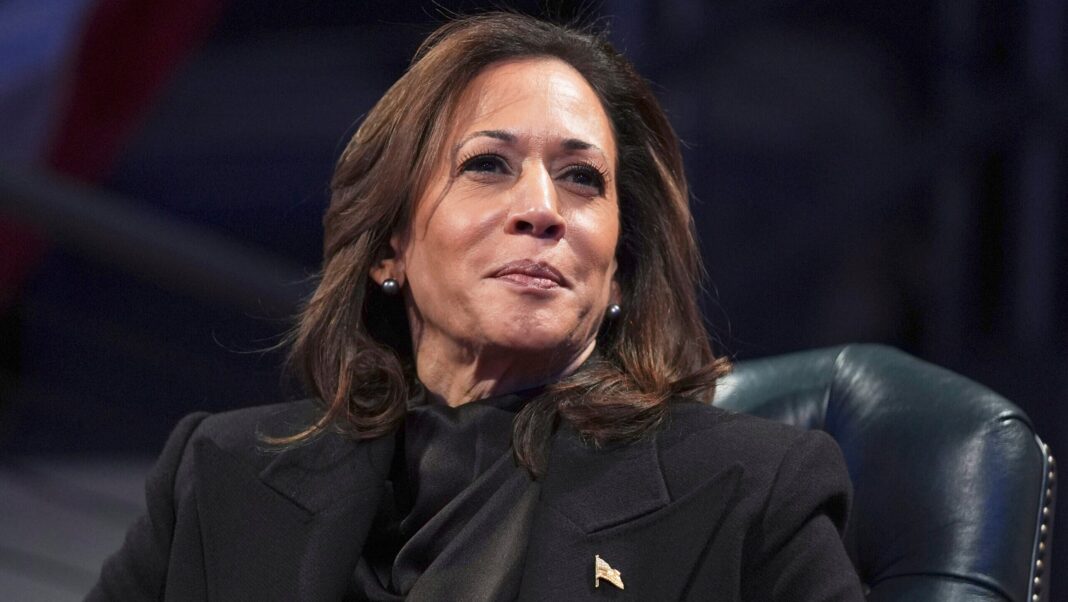The Emotional Journey of Kamala Harris in “107 Days”
In her new book, “107 Days,” Kamala Harris paints a vivid, emotional picture of her unexpected loss in the 2024 presidential election to Donald Trump. The narrative begins with a deeply personal moment—Harris recounts the feeling of disbelief that washed over her as she processed the reality of defeat. “I could barely breathe,” she writes, a raw expression that resonates with the intensity of her experience. Surrounded by her staff, who unceremoniously peeled “Madame President” off celebratory cupcakes, Harris questioned the future of the country. “My God, my God, what will happen to our country?” she pondered, encapsulating the widespread anxiety felt during that pivotal moment.
Grappling with Grief
As dawn broke after the election, the emotional turmoil continued. Harris reflects on her struggle with denial and bargaining—stages of grief that anyone can relate to but which feel particularly amplified in the wake of a fierce political campaign. The journey of acceptance seemed daunting, marked by overwhelming feelings of shame and confusion, leading the reader to a deeper understanding of her state of mind.
A Rapid Campaign: The Meaning of “107 Days”
The title of the book, which references the 107 days of her hyperspeed campaign, hints at the frantic pace and overwhelming circumstances that defined her experience. Rather than being a lengthy memoir or a detailed political commentary, Harris’s writing has a ticking-clock quality, capturing the urgency and intensity as Election Day approached. Each chapter unfolds with a sense of impending climax, giving readers an insider’s view of political maneuvering and personal conflict.
The Complex Dynamic with Joe Biden
One of the most compelling aspects of Harris’s narrative is her candid look at her relationship with Joe Biden. While she insists that she never doubted his capacity to lead, she does discuss the physical toll of his age. “But at eighty-one, Joe got tired,” she observes, noting that his limitations were apparent during critical moments, such as debates. This acknowledgment of vulnerability paints a nuanced picture of political partnerships.
Harris expresses frustration regarding Biden’s campaign strategy, particularly as the pressures mounted. “It seemed that the worse things got, the more they pushed him,” she remarks, identifying a disconnect in their team. This candid admission adds layers to their relationship and highlights the strains of political ambition.
Moments of Frustration and Loyalty
Despite warm reflections on her partnership with Biden, Harris doesn’t shy away from discussing awkward moments. She recounts a July Fourth celebration where Jill Biden questioned her husband, Doug Emhoff, about their commitment to the campaign. “Are you supporting us?” Jill asked, leaving Emhoff visibly angry. “They have to ask if we’re loyal?” he retorted. Such dynamics reveal the pressure cooker environment in which both Harris and Biden were operating.
In another episode, a call from Biden just before one of her debates adds to her frustration. His rambling redirecting the spotlight onto himself left her baffled and unprepared. “I just couldn’t understand why he would call me, right now, and make it all about himself,” she writes, further illustrating the complexities of their political dance.
Hindsight and Missed Opportunities
Harris also engages in self-reflection, openly admitting mistakes from her campaign. A notable moment occurred during an appearance on “The View,” where a misstep with her talking points became a significant blunder. “I had no idea I’d just pulled the pin on a hand grenade,” she described, realizing too late that her words would provide ammunition for the Trump campaign. Such admissions emphasize the high stakes of political life and the precision required in public discourse.
Navigating the VP Selection Process
The book also sheds light on her thoughts about choosing a running mate. Harris reveals that she initially considered Pete Buttigieg but ultimately decided against him due to concerns about voter acceptance of both a Black woman and a gay man on the ticket. This insight provides a glimpse into the strategic calculations candidates must make, reflecting the weight of representation in politics.
Preparing for the Inevitable
Another eye-opening segment involves Harris’s relationship with her brother-in-law, Tony West, who prepared a “Red File”—a contingency plan in case Biden could no longer lead. The foresight shown by West sparked a mix of emotions in Harris, as she admitted, “I didn’t want to dwell on such an eventuality.” This preparatory document would later become crucial during her own campaign, especially when Biden ultimately suspended his reelection bid.
Bizarre Campaign Moments
Lastly, the sheer strangeness of campaign life comes through in Harris’s anecdotes, highlighting the surreal atmosphere that often accompanies electoral battles. A particular warm-up session for her convention speech, involving animal noises at the insistence of a voice coach, showcases the absurdity that can arise in high-pressure situations. These moments of levity intersperse the gravity of her narrative, offering readers a well-rounded view of her experience.
Interactions with Trump
Even her interactions with Trump take on a bizarre quality, especially after a second assassination attempt against him. Despite their fiercely contentious relationship, Trump’s sudden charm during their talk left Harris contemplating his unique ability to manipulate perceptions. “He’s a con man,” she thought, further elucidating the psychological games that define political rivalries.
In “107 Days,” Kamala Harris masterfully weaves a personal narrative steeped in emotion, ambition, and the often-absurd realities of political life, providing readers with a captivating glimpse into her most challenging period.



